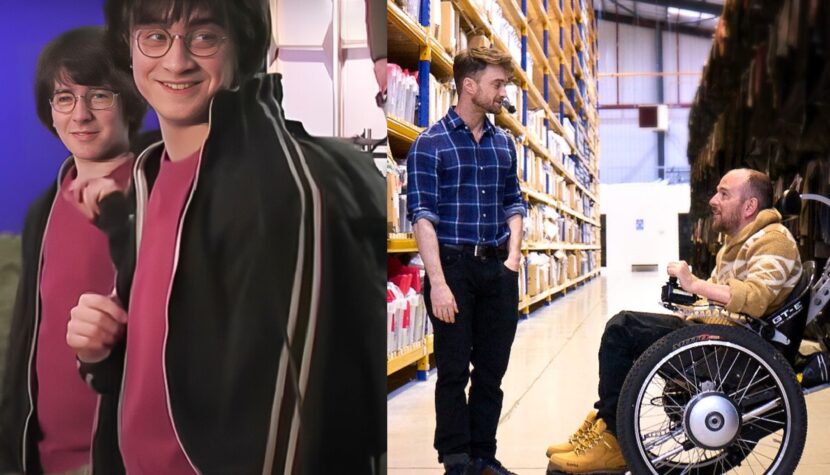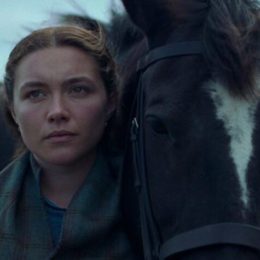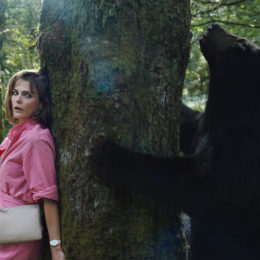“David Holmes: The Boy Who Lived.” A Moving Documentary about Radcliffe’s Stunt Double from the “Potter” Set [REVIEW]

In one of the scenes from the film “Harry Potter and the Deathly Hallows: Part 1,” the titular hero battles Nagini, Voldemort’s snake, in the home of Bathilda Bagshot. During the confrontation, Harry strikes a wall, breaking through to the other side. This brief action scene forever changed the life of stuntman David Holmes, the protagonist of the new HBO documentary directed by Dan Hartley – “David Holmes: The Boy Who Lived.”
Born in 1981, Holmes, from a young age, as his parents recall, felt no fear and expressed a desire to become a stuntman. He adhered to the philosophy that you truly live when you are close to death. As a child, he trained in gymnastics, and his agility and courage led him to become Daniel Radcliffe’s stunt double in particularly dangerous scenes on the set of “Harry Potter and the Philosopher’s Stone” (2001). He continued in this role in subsequent films in the series, spending hours executing flying scenes on a broomstick, running amidst explosions, or allowing himself to be tossed around on wires. He also did somewhat safer tasks, such as teaching Radcliffe how to swing a Quidditch bat to hit a Bludger. The two became close friends – Radcliffe, in fact, speaks throughout the documentary (he is also a producer) and mentions that during the filming of Harry Potter, he was closest not to the cast but to the crew hidden behind the scenes.

Holmes’s life took a drastic turn in 2009 when, during rehearsals for a scene involving crashing into a wall, he hit an obstacle too hard, resulting in a broken neck and partial paralysis. The documentary creators use private recordings from that time to show the initial months of Holmes’s life after the accident when he lay confined to a hospital bed, interspersed with contemporary interviews with Holmes himself, his parents, friends, including Radcliffe. The actor who portrayed Harry Potter shortly after the accident flew to London to keep his friend company, and they currently maintain regular contact. The documentary also features modern conversations between the two men, reminiscing about their time on the Potter set, visiting the gymnasium and prop warehouse from the films. Meanwhile, plenty of archival footage from the sets of subsequent parts of the series appears, focusing on the work of those whose significant contributions are often overlooked in discussions about the finished films, without whom many scenes could not have been created in the same form. It offers an interesting, alternative perspective on the Potter series and, by extension, on Radcliffe himself. Here, the actor is not seen through the lens of a star of a major film series, but simply as a good, dedicated friend who shared an extraordinary experience and a different childhood dimension with others.

Related:
Although Holmes tried not to lose his spirit after the accident, it is inevitably poignant to watch recordings capturing his new reality, especially when compared to his feats on the Potter set. Initially losing the use of his legs, due to a rare cyst on the spine, Holmes gradually started losing sensation in his upper limbs as well – he requires additional surgeries to prevent further complications. Holmes candidly describes his condition as claustrophobic, akin to being enclosed in a coffin. The statements from Holmes’s parents (especially his mother, who talks about her helplessness after her son’s accident), his friend – also a stuntman – who cannot hold back tears while recounting the incident, and Greg Powell, the stunt coordinator, are moving. Powell openly blames himself for Holmes’s accident and admits to avoiding frequent contact due to a guilty conscience. In turn, Holmes emerges as a person who constantly cares for others, expressing it both on a larger scale (raising funds) and on a smaller scale (private conversations). At one point, Holmes’s mother talks about wanting to find someone to blame for her son’s accident and take legal action, but he took a different approach – since his life was ruined, why ruin someone else’s?
At one point, Radcliffe mentions that Holmes’s case made him realize how fleeting certain things can be and implies that it serves as a lesson for him not to waste the opportunities life presents. This is certainly a fitting conclusion to the entire documentary, which may interest not only fans of Harry Potter’s adventures but is primarily a story of passion, friendship, and the struggle against adversity, capable of both moving and uplifting spirits.





